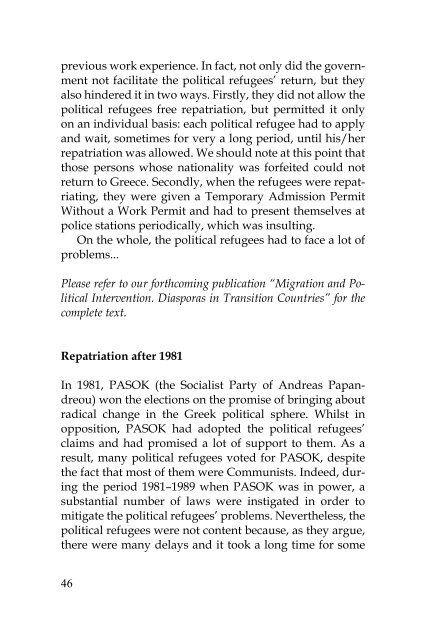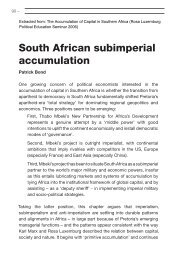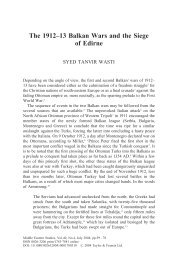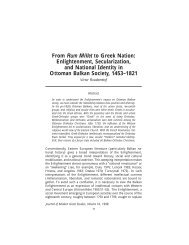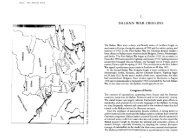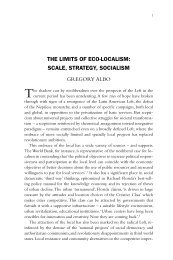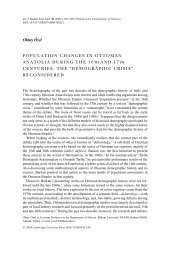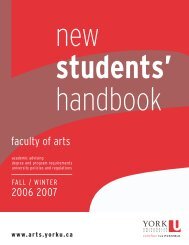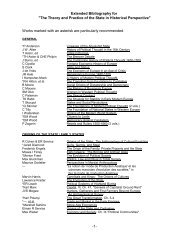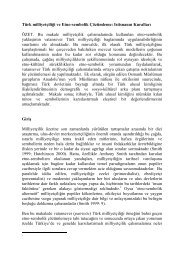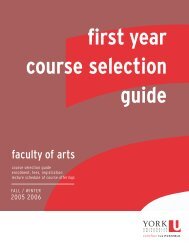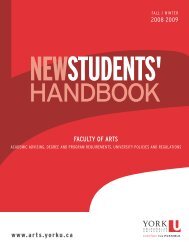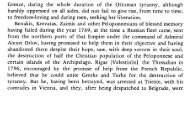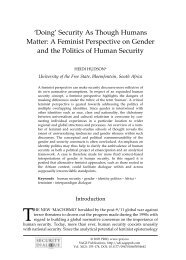The Greek diaspora in Eastern Europe and the Former Soviet Union
The Greek diaspora in Eastern Europe and the Former Soviet Union
The Greek diaspora in Eastern Europe and the Former Soviet Union
You also want an ePaper? Increase the reach of your titles
YUMPU automatically turns print PDFs into web optimized ePapers that Google loves.
previous work experience. In fact, not only did <strong>the</strong> government<br />
not facilitate <strong>the</strong> political refugees’ return, but <strong>the</strong>y<br />
also h<strong>in</strong>dered it <strong>in</strong> two ways. Firstly, <strong>the</strong>y did not allow <strong>the</strong><br />
political refugees free repatriation, but permitted it only<br />
on an <strong>in</strong>dividual basis: each political refugee had to apply<br />
<strong>and</strong> wait, sometimes for very a long period, until his/her<br />
repatriation was allowed. We should note at this po<strong>in</strong>t that<br />
those persons whose nationality was forfeited could not<br />
return to Greece. Secondly, when <strong>the</strong> refugees were repatriat<strong>in</strong>g,<br />
<strong>the</strong>y were given a Temporary Admission Permit<br />
Without a Work Permit <strong>and</strong> had to present <strong>the</strong>mselves at<br />
police stations periodically, which was <strong>in</strong>sult<strong>in</strong>g.<br />
On <strong>the</strong> whole, <strong>the</strong> political refugees had to face a lot of<br />
problems...<br />
Please refer to our forthcom<strong>in</strong>g publication “Migration <strong>and</strong> Political<br />
Intervention. Diasporas <strong>in</strong> Transition Countries” for <strong>the</strong><br />
complete text.<br />
Repatriation after 1981<br />
In 1981, PASOK (<strong>the</strong> Socialist Party of Andreas Pap<strong>and</strong>reou)<br />
won <strong>the</strong> elections on <strong>the</strong> promise of br<strong>in</strong>g<strong>in</strong>g about<br />
radical change <strong>in</strong> <strong>the</strong> <strong>Greek</strong> political sphere. Whilst <strong>in</strong><br />
opposition, PASOK had adopted <strong>the</strong> political refugees’<br />
claims <strong>and</strong> had promised a lot of support to <strong>the</strong>m. As a<br />
result, many political refugees voted for PASOK, despite<br />
<strong>the</strong> fact that most of <strong>the</strong>m were Communists. Indeed, dur<strong>in</strong>g<br />
<strong>the</strong> period 1981–1989 when PASOK was <strong>in</strong> power, a<br />
substantial number of laws were <strong>in</strong>stigated <strong>in</strong> order to<br />
mitigate <strong>the</strong> political refugees’ problems. Never<strong>the</strong>less, <strong>the</strong><br />
political refugees were not content because, as <strong>the</strong>y argue,<br />
<strong>the</strong>re were many delays <strong>and</strong> it took a long time for some<br />
very vital issues to be regulated. Fur<strong>the</strong>rmore, <strong>the</strong>y have<br />
also argued that <strong>the</strong> measures were <strong>in</strong>efficient.<br />
Before we proceed to <strong>the</strong> presentation of <strong>the</strong>se measures,<br />
some statistical <strong>in</strong>formation needs to be provided.<br />
PEEPP reports that, <strong>in</strong> 1996–97, <strong>the</strong>re were 18,650 political<br />
refugees still liv<strong>in</strong>g <strong>in</strong> eastern <strong>Europe</strong> (5,000 <strong>in</strong> Tashkent,<br />
5,000 <strong>in</strong> Pol<strong>and</strong>, 2,500 <strong>in</strong> Bulgaria, 2,100 <strong>in</strong> [<strong>the</strong> former]<br />
Czechoslovakia, 2,000 <strong>in</strong> Hungary, 1,300 <strong>in</strong> Romania <strong>and</strong><br />
750 <strong>in</strong> [<strong>the</strong> former] East Germany; also, about 40,000 political<br />
refugees have repatriated; 20,000 did so after 1981).<br />
I shall present <strong>the</strong> measures taken by <strong>the</strong> <strong>Greek</strong> government<br />
s<strong>in</strong>ce 1981 accord<strong>in</strong>g to subject, along with <strong>the</strong><br />
relevant claims made by <strong>the</strong> political refugees, divided<br />
<strong>in</strong>to two ma<strong>in</strong> categories: issues of moral restoration, <strong>and</strong><br />
issues of material restoration. Firstly, it is important to note<br />
<strong>the</strong> claims of <strong>the</strong> political refugees as a whole, as expressed<br />
<strong>in</strong> 1981:<br />
• free <strong>and</strong> unconditional repatriation;<br />
• attribution of <strong>Greek</strong> nationality to those deprived of it;<br />
• bilateral agreements with East <strong>Europe</strong>an countries concern<strong>in</strong>g<br />
<strong>the</strong> transfer of pensions <strong>and</strong> social security;<br />
• recognition of previous experience before return<strong>in</strong>g to<br />
Greece;<br />
• recognition of previous experience before leav<strong>in</strong>g<br />
Greece <strong>in</strong> 1949;<br />
• abrogation of <strong>the</strong> consequences of <strong>the</strong> civil war;<br />
• return of <strong>the</strong>ir former properties;<br />
• recognition of <strong>the</strong>ir diplomas <strong>and</strong> of <strong>the</strong> previous vocational<br />
experience of teachers of <strong>the</strong> <strong>Greek</strong> language <strong>and</strong><br />
<strong>the</strong> history of eastern <strong>Europe</strong>;<br />
• welfare for <strong>the</strong>ir vocational rehabilitation;<br />
• welfare for hospital <strong>and</strong> medical treatment;<br />
46 47


